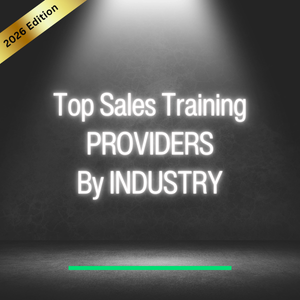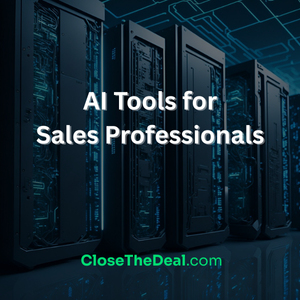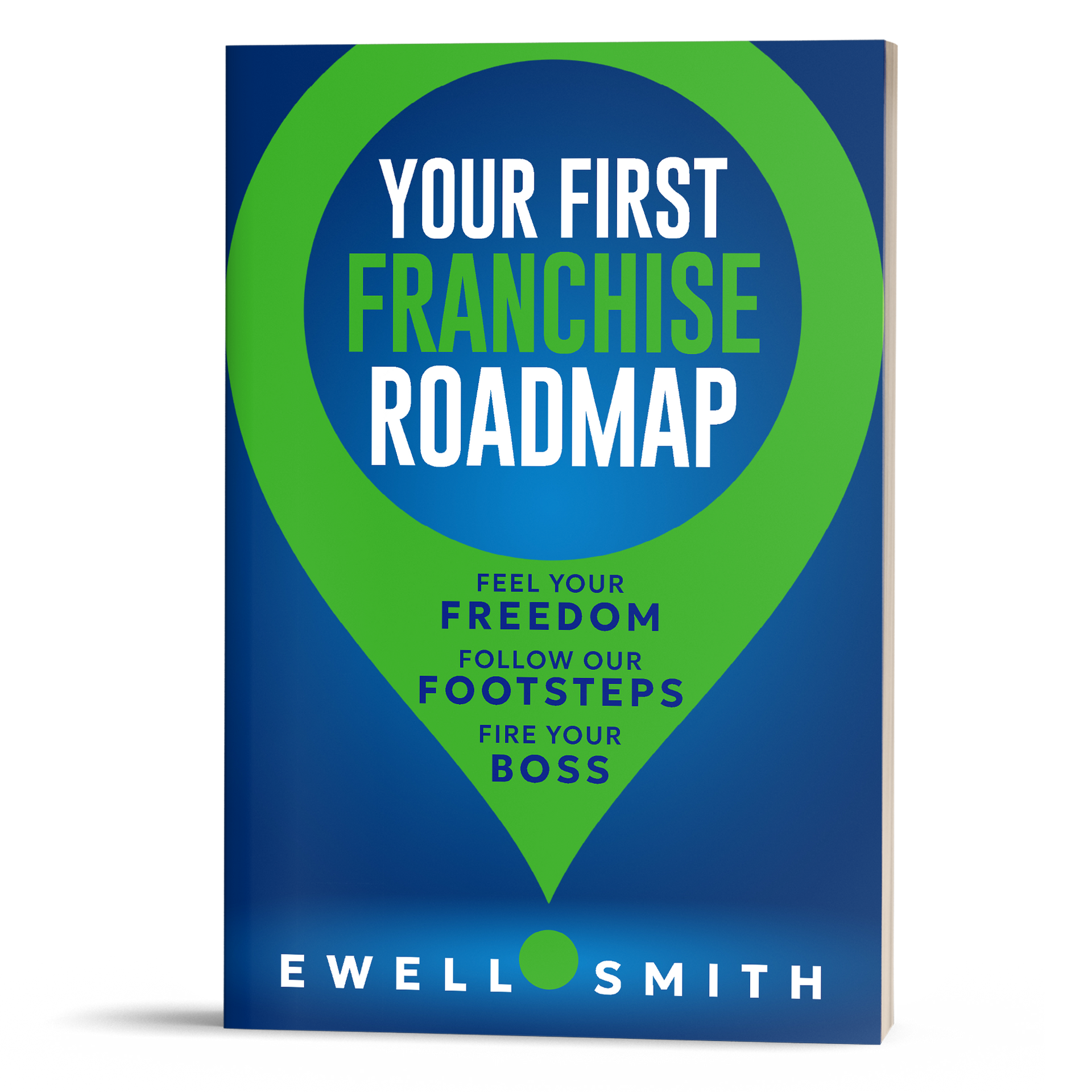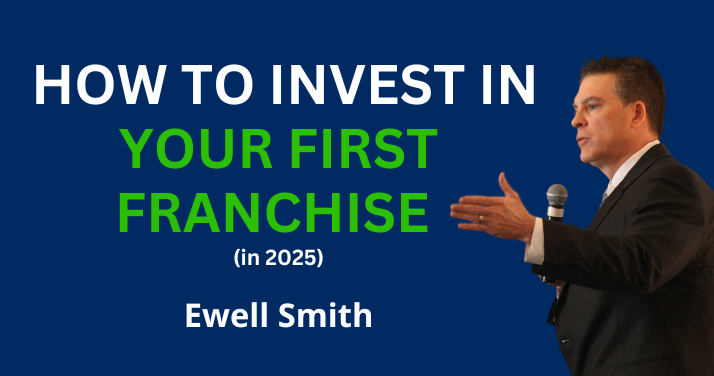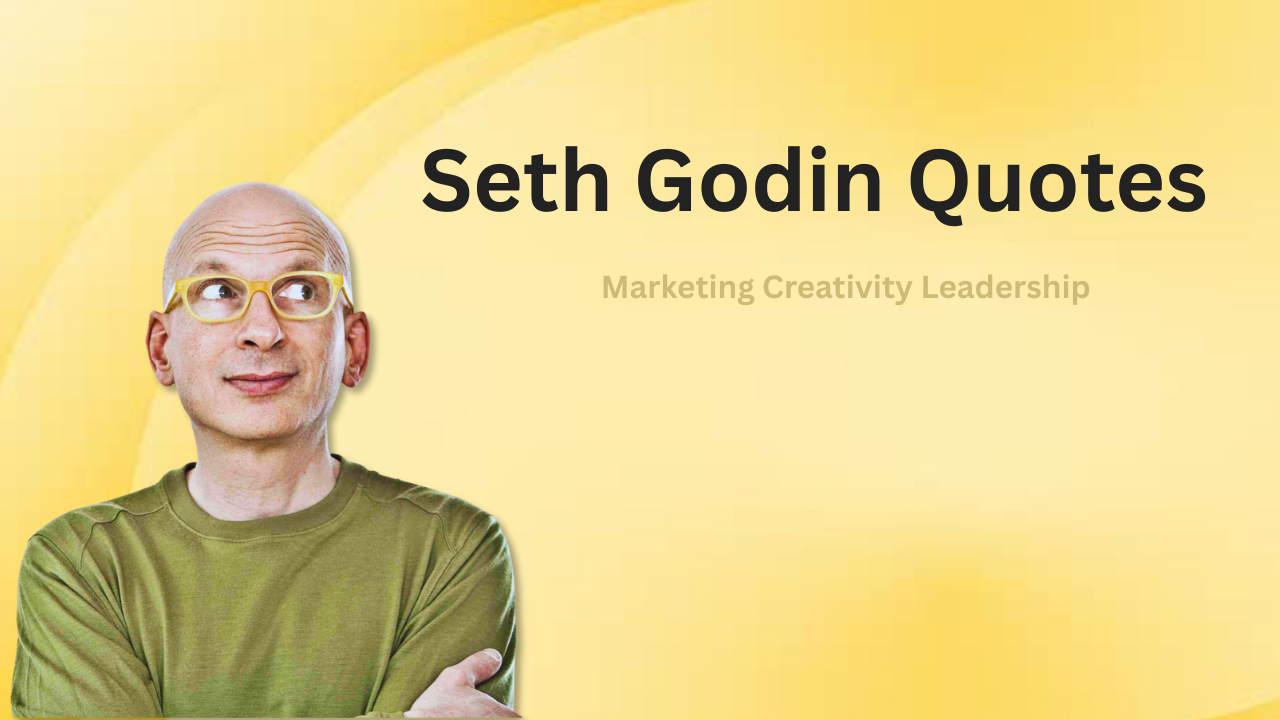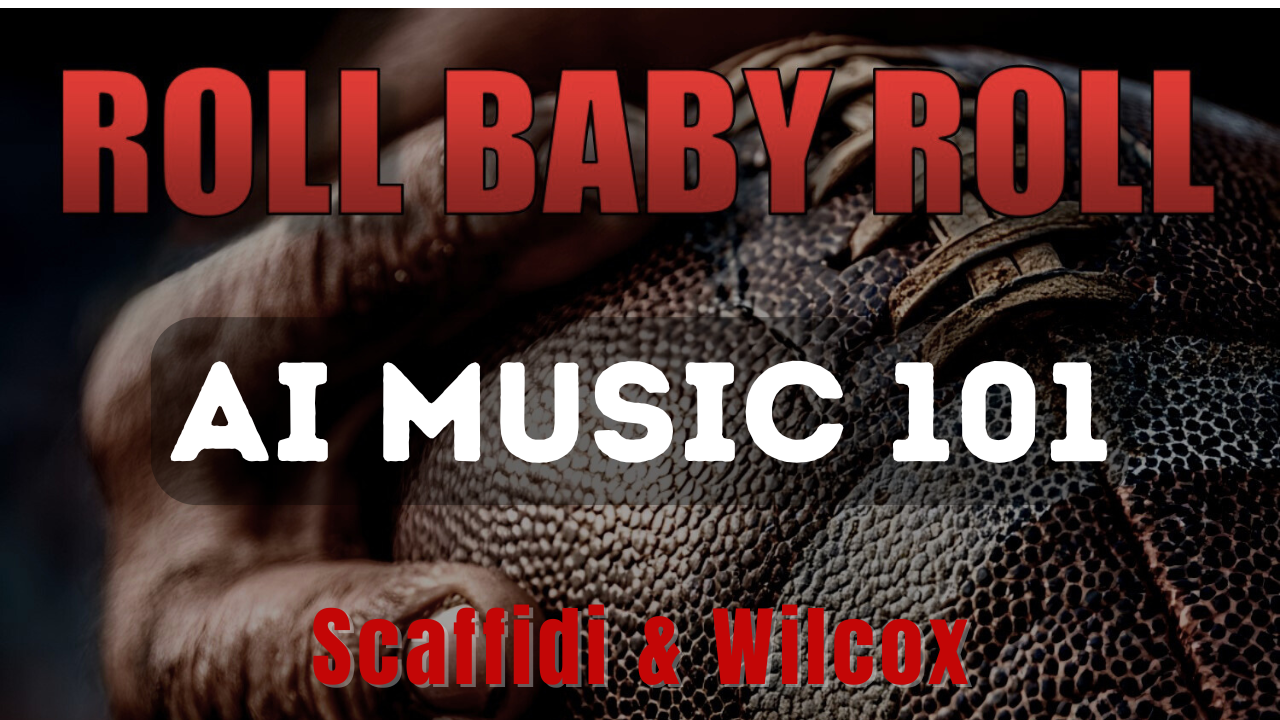December 14, 2022 by Ewell Smith
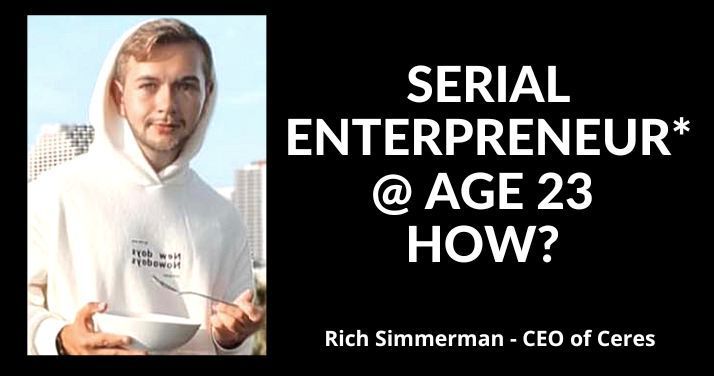
Rich Simmerman
CEO - Ceres
20 grams of clean protein in your cereal
It's possible and here's how
On this episode of Close The Deal .com Podcast, you'll learn the new definition of serial entrepreneur* thanks to the Idea Village.
Problem Rich Solves – America's nostalgic breakfasts are devoid of protein and clean ingredients
3 Takeaways to Help You Close The Deal:
- The skill of seeking, listening, and acting on mentors' guidance
- Using the Lean Startup Methodology to kickstart a new business
- The marketing tactics (and data) used to launch a food business that’s a tech business at the core
Connect with Rich Simmerman
Website: enjoyceres.com
Linked In:
https://www.linkedin.com/in/richsimmerman/
Products We ❤️
Rich Simmerman Show Notes
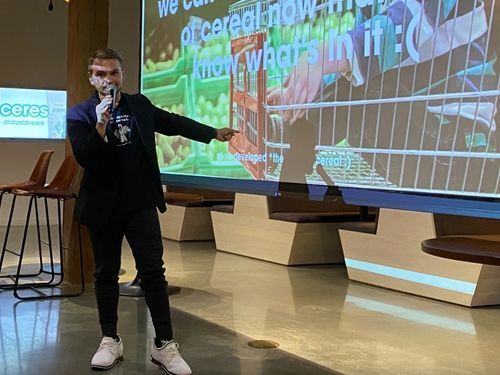
00:00:00] Rich Simmerman: I'm biased, but creating is the most fun thing a human being can do because when you do something that, is driven by passion and excitement in the world around you, that cannot be undone.
Even if people say they don't like it. So on and so forth, who cares? I mean, it's a passionate thing. It’s creativity. You are an entrepreneur. You are a creator. If you're a creator, you can be an entrepreneur.
Ewell Smith: That is Rich Simmerman. He is a serial entrepreneur by the age of 23 years old. How does that happen? I'm going tease you on that in a second. Now he's going talk about food processes in a way that you might challenge you to be quite candid, especially my generation, a little older, I'm 55 years old. He's also gonna go over his go-to strategy, bringing a new product to market and…
Do you have an autoimmune issue?
[00:00:50] …if you know anybody who has an autoimmune issue, or maybe you have an autoimmune issue, this episode may resonate with you.
So age 23, how does that happen? Well, there's a group called the Idea Village that served as a mentor to him, along with some others along the way, which he's going to share on how that worked, that process.
Now you're listening to the Close The Deal .com Podcast. I'm your host Ewell Smith, and we're gonna find out exactly what is the problem that Rich Simmerman solves.
Ewell Smith:
Rich, I want to welcome you to the Close The Deal .com Podcast. Where are you today?
Rich Simmerman: Thank you Ewell. I’m in uptown, New Orleans .
[00:01:40] Ewell Smith: It's one of my favorite parts of the city. There's no question. Now you are a serial entrepreneur, but you're a serial entrepreneur in a bit of a different way. And I don't want to give that away. You'll explain that in just a minute, but you're a serial entrepreneur at the age of 23.
Rich Simmerman: Thank you. I am.
[00:01:58] Ewell Smith: You recognized a problem in the marketplace, you saw an opportunity and then you came up with a solution. Tell us what that problem was and what the product that you came up with.
Rich Simmerman: Sure. Well Ewell ,did you grow up eating breakfast cereal?
Ewell Smith: Yes.
The issues with traditional cereal.
Rich Simmerman: Well, you're not alone. I did too and 295 million other Americans eat breakfast cereal every single day. The problem is simple with that, cereal is unhealthy and unsustainable. Now just as much as it was when you were a kid and not so long ago, when I was a kid with 19 grams of sugar per serving, that's still the average sugar content in cereal today.
Your average cereal's 40% artificial. That means 40% of the ingredients in it are not natural. That makes cereal unsustainable for people.
But it's also unsustainable for the planet. Unsustainable grain farming at the hands of big cereal manufacturers, one of the largest causes of global heat trapping, emissions, chemical runoffs, and so on and so forth.
[00:03:02] So the problem is that cereal is unsustainable for people and the planet. That is the issue.
Ewell Smith: So what is your solution?
A cereal entrepreneur is born.
Rich Simmerman: Well, yeah, Ewell, in entrepreneurship, it's all, you know, one of the biggest things is if the product doesn't exist yet, either you're a genius or there's a reason it doesn't exist. I'm not a genius. But there is sort of the difference here. There has never been a cereal, like Ceres, which is the company that I co-founded for a number of reasons.
And the reason I think, number one is that there hasn't been the time for it. But the solution to the problem of cereal being unsustainable and unhealthy for people for the planet. For us Ceres plant protein cereal is the very first breakfast cereal with 20 grams of plant protein, zero grams of sugar in every serving, we are made with 100% sustainable ingredients.
One serving is 160 calories, zero grams of sugar. We don't have any fake sweeteners . We're keto friendly, vegan, friendly, gluten free, and that’s for the people side, but for the planet side, we're, it's a sustainably sourced cereal where you can track the carbon impact on every single pouch.
[00:04:07] So to us, that is the solution for the problem of unhealthy unsustainable cereal.
Ewell Smith: And that makes you a cereal entrepreneur.
Rich Simmerman: I'm serial entrepreneur with a "C"
Ewell Smith: Tell us about your journey.
Rich's pain point turns into opportunity
Rich Simmerman: It was my senior year of college and it was 2020 and it was a miserable time for many people, myself included during the pandemic. And, I was just extremely It was, I wanna say March 16th, March 17th and one of my closest friends and fraternity brothers had passed away.
This is the exact same day. I think that they announced we were leaving campus and that the world was shutting down. I just felt awful. I felt terrible and I could not find motivation to do anything. So day after day, I would just lay around my house and play video games and eat cereal.
[00:04:55] Zoom class, I would eat a bowl of cereal. That was like my regular thing. I started to eat two, maybe three bowls a day and it was the same cereal. It's delicious. It's trader Joe's, Strawberry Frosted Yogurt O's, and I would eat it so much. You know, I even tried to motivate myself to be more active and I wasn't eating that much else than what I normally was just the cereal bit more like stationary than and I gained 26 pounds. I was miserable and it started there.
It was sort of like a reawakening to a health problem that I've combated my entire life. I was practically morbidly obese for the majority of my childhood. Not a tall guy, but I played lineman, going into my freshman year of high school for football.
I've always battled my weight. So, when it hit me again, going into my senior year of college, I was particularly miserable and distraught. So, cereal. I don't know why I stuck with that so much. I guess it was a comfort food. It's a comfort
Rich Simmerman: Many of us, it's sort of like a nostalgic piece. I realized that I could not get what I wanted out of any of the cereal that was available.
[00:05:59] Trader Joe's Yogurt O's were, I perceived them as healthy, as many other people did, you know, it's strawberries and yogurt. can a bowl of grains and fruit be so bad for you? And that question led to two years of research to an answer that is not a bowl of grains and fruit. It hasn't been that probably since Rome, the cereal industry are some problems in that space. They lack protein. It lacks, high quality ingredients and it lack ingredient, integrity. So that's really, what's caused the idea for Ceres plant protein cereal?
Ewell Smith: So you were in college going through this as this idea started coming to life. Where were you going to college at the time.
Rich Simmerman: So I was at Loyola University of new Orleans.
Ewell Smith: You're at Loyola and I'm a little older. I'm 55. And, I grew up on Sugar Smacks. That's what they literally called it. Sugar Smacks at the time, which is the now Smacks and Fruit Loops and all the other things that are just loaded with sugar.
[00:06:57] And they even put the word sugar in Sugar Smacks when I was a kid. And, I had become very attuned to clean eating the past three years, because my wife was diagnosed with an autoimmune issue. I'll have to talk about that on another episode. But the bottom line is the diet. My wife started eating clean and she caught it early on and it reversed her autoimmune issue.
So I started really paying attention to clean eating whole foods and so forth. That's why I think I started following your journey on LinkedIn and that's where - how I got to meet you originally. And then I went to your product launch and I saw how you identified your competition.
This is Ceres competition.
Can we talk about your competition for a second because you mentioned three different brands.
What were they, Three Wishes I was familiar with? I had just become familiar with. I don't know about a month ago to be quite candid. I saw it on the shelf, but you mentioned two other brands I was not familiar with. And then I just saw a story that you posted about the funding for one of the brands.
[00:08:01] So this tells you this space is ripe for your product. So, what are those three other brands and this is not knocking the brands. This is just
saying, this is the competition. And we are differentiating ourselves. And this is how.
Rich Simmerman: That's it. to get to the competition, I want to start on a tiny little journey
Finding the right mentors.
Rich Simmerman: So when I first had this concept there were some great mentors that were like, hey, maybe refine into this, maybe refine it to that. the first mentor that I want to mention.
Relating directly back to this is Dr. Felipe Masa, the head of entrepreneurship at Loyola, and he runs the Idea Village ID Institute Accelerator, that I graduated from. And he told me, and this was not being critical. It was a question more so that, that caused us to think about what brand we wanted to be.
What do we want take to market? He said, Rich, cereal industry, look at the growth. It's not there. compound annual growth rate for American ready to eat. grain cereal was 4.8%. This was at the time he was like, you're going to have, you know, time because that's a crowded market and it's not growing much.
[00:09:06] So, you know, how can you make, your cereal be different? How can it compete in maybe another market? So, we developed the cereal with other cereals in mind, but we developed it. We market it. Our brand is structured like a health supplement. We even have health supplement label claims and product insurance that is more like that of a protein powder than of a cereal.
Yet we still prefer to be called a cereal and compete in the cereal market against the competitor's Magic Spoon, Misfits, and Three Wishes. Those are our top three closest competitors in our mind. And that's the result and a half years now, almost of research and development to see where we can position the market.
I said this at the event the other night, and it's unpopular for a founder to praise another brand, but Three Wishes is delicious. I promise you, I had a bowl of Three Wishes for breakfast this morning. And you know, it's like, why would I praise another brand? The ingredients are clean.
[00:10:01] It's a pretty high quality cereal. Thing is for people that live active lifestyles or for people that prioritize protein in their meal, it's just not enough. You know, it's eight grams of protein and it's very high quality protein but it's not enough. So that's what you get in a single serving of Three Wishes.
You get eight grams of quality protein as opposed to 20 grams of quality protein in a single serving of series, which is about the exact same size. But we go over to Magic Spoon, which just closed an $85 million capital deal last week, I had people buzzing me. I mean all throughout the night, they're like, the opportunity.
Look at this opportunity. Look at this opportunity. I never believed I was told by a couple, you know, investors and a couple people that cereal was dead just a year ago. They're like, oh, we wouldn't invest in a cereal company. We already don't like consumer package goods, especially a cereal company.
Nostalgia marketing sells.
That's okay. what I saw, what my co-founder saw, what data shows and we're very driven at Ceres is nostalgia sells, Look around. Have you ever heard of Olipop Prebiotic Soda?
Ewell Smith: I am not familiar with that one, but I'm familiar with a couple others that, that we use Synergy a lot.
Rich Simmerman: Synergy's a great one. So this company was built. Olipop was one of our, my biggest inspirations, you know, the soda industry and the serial industry suffer the same. Basically, the same two companies in the soda industry dominate the market. The same four companies dominate in cereal.
They are not innovators. They pack their products with sugar and chemicals that we know what they are now. So, the soda industry was seeing extreme declining sales for years. Olipop comes in and says, boom, we see an opportunity. Remember that fizzy pop delicious sweet soda you had as a kid,
Hey, it back. Let's make it healthier. We saw that nostalgia sold in that market. The same with candy here we are with cereal. The only difference is that we're not just a cereal. We are a legitimate health supplement with 20 grams of plant protein, vitamin packed and slow digesting grains in our cereal.
That was sort of the culmination of the concepts about all of that in our competitors where we stand.
[00:12:01] Ewell Smith: When I saw you share that article, then I saw who's behind it, which is OBJ Odel Beckham Jr. I'm like, right.
That tells you there's a lot of interest in this and what they help you. They actually help you. It's kind of like that principle of McDonald's Burger King, Wendy's all in the same corner, educating the customer.
They help you, I think because they gonna help educate the masses with that kind of cash infusion. But you get to come in and ride their coattails as a brand new entity and you are differentiating. And that's one of the things that really caught my attention is the amount of that is what caught my attention.
First of all, it's a great product. I tried your product. It was fantastic. And secondly the 20 grams of protein. I work out. I've worked out since I was like 19 years old at a gym and getting enough protein is always a challenge and finding, especially as you try to find healthier and healthier sources, this is a great alternative.
Well, this is a great source. I should say, not an alternative. This is a great go-to source for that. So, that part excited me is that's why I started following your journey. And, I think you're onto something. We gonna break here in just for a go to part two.
I want to talk about the marketing. I wanna talk about how you're bringing this product to market, because you've done a phenomenal job with that. I wanna talk about some of the challenges you've overcome doing this. I really wanna understand your why. Because you, you alluded to it a little bit earlier.
We will talk about that a little bit further. Where can people find your product today?
Rich Simmerman: So our product is available for pre-order right now at enjoyceres.com.
[00:13:37] every pre-order gets a free gift courtesy of us. We are online direct to consumer and that's pretty simple to get it to you. We have no minimum entry as well.
You can buy a single pouch. Unlike most of our competitors,
Ewell Smith: So we're gonna come back here in just a second. And what we're gonna do is we're gonna dig in and we also gonna understand his strategy, because you just heard him talk about going direct to consumer and he's not going to retail yet. And he's gonna explain to you why in just a second.
[00:14:02] BREAK
You may not realize it, but you're listening to the very first episode of Close The Deal. Com Podcast. We replaced the old show, the Absolutely Mindset Podcast with this show, new brand new mindset and speaking of mindset, health and fitness underlie everything that we do in life.
It's kind of the principle behind this because it affects our work, our business, our life, everything. And I've got some great news for you at the age of 55. I just got my blood work back and it's all come back in the green. And I attribute that to three things: working out on a regular basis, eating as clean as I possibly can, and I use a AG1 first thing in the morning.
It's a powder that's a multivitamin, multi mineral. I drop it in the glass of water stir it and drink it and go to the gym. It's that easy? It's made it so easy. I don't miss a single day because of it. I love this product. Now they've set up a special promotion for. You can go to CloseTheDeal.com/AGI
[00:15:12] And they're gonna give you $15 off your first order. They're gonna give you five free travel packs, and they're gonna give you a year's supply of Vitamin D and K2. So check it out - CloseTheDeal.com/AG1. Now let's get back to the.
Part 2 Close The Deal .com Podcast
What Rich is grateful for.
Ewell Smith: Welcome back Rich. Before we get into the marketing and the why and the mindset and all those things I wanna ask.
You're in a different place than you were two years ago. What are you grateful for today? Or who are you grateful for today that's got you to this place?
[Rich Simmerman: Sure. So obviously my family has supported me every step of the way. And my closest friends, many of which are the very first evangelists of Ceres. And that's just obvious more specifically, I want to say we would not be here without The Idea Village Institute Accelerator. It’s Just incredible.
[00:16:12] They changed our life, Loyola Center for Entrepreneurship you know, Bara Watts and Sam McCabe, Felipe Massa people that really practice what they preach in this city. Now most recently, you know, the Tulane LePage Center and just really great local entrepreneurs that have taken the time to mentor us and give us their insight about this product.
It's just amazing. Makes me proud to be in New Orleans.
The guiding force behind Rich's go-to-market-strategy.
Ewell Smith: You know, watching you roll this product out and we can talk about the marketing and everything, but watching you roll this product out and the strategy, I mean, it's almost like I've watched the strategy just unfold before my eyes of how you've done this. That just didn't happen by accent that is with the mentoring through that organization I'm suspecting?
Rich Simmerman: That Idea Village changed everything about this company. They helped us build this company based on something called lean \ startup methodology.
[00:17:02] Now we have mentor investors that serve as mentors as well, that I can pick up the phone and ask a simple question anytime. So to have that, those decent people behind us quality people it gives a young founder like me, confidence that I otherwise wouldn't have.
They hold us accountable.
Ewell Smith: And you're listening to that advice clearly, because when I figured out your age, I'm like, how's this guy doing this at 23 years old? Not only that, at your launch event, you had surrounded yourself with a great team of people. So, you recognize this gonna take a team of people to make this work.
So you kind of gave some insights to the why, but it goes back all the way to childhood, which is a lot of times the case.
Willing to be vulnerable.
Rich Simmerman: It is. And it's an area that is honestly a challenge for me. Michelle Kay Johnston and professor at Loyola and the author of the Seismic Shift in Leadership, which is New Your Times bestselling book on Amazon. I had a class with her and she preached the importance of vulnerability and being vulnerable. And that's something I practice.
So in a moment of vulnerability here, I grew up unhealthy. We all, I mean, look, my family it's Louisiana, right? We ate gumbo. We ate carbs every night and no one thought differently, fried seafood platter. So on and so forth. It was in love. They did it for good reason.
[00:18:17] I mean, you know, but. I didn't feel good. I was always smaller than people physically growing up. And my mass of being unhealthy at a weight that I wasn't happy with made me very insecure growing up and it was awful. I felt awful. I couldn't really get confidence as a kid.
When I came into college that all changed because, and it didn't change because had some sort of like crazy awakening. It changed with what I ate. I started to really embrace plant-based foods, clean eating whole foods, you know, result of a lot of self-education. And just watching other people and it got a lot better.
I think I was 225 pounds at five foot going to my sophomore year of high school. When I went into college at like five, five, I was a healthy 140, I played sports felt great, but I always battled that it never stopped. In my darkest moments of college, when I was depressed or annoyed or finals, it was eating.
[00:19:11] I would eat junk. And you know, that's these products the Twinki, the pizzas, the chicken, they're all designed to make it tomake us want more to make us feel but there's no comfort in that. It would just lead me back after I'd eat some garbage food.I feel terrible about it.
Finding his passion through the process.
And first off in moderation, you could always enjoy it. No question, but I would over indulge and I'd feel awful. So finally, after all this I found my passion in life at this young age, at least now, which is clean eating because the power of food can never be under spoken.
It powers everything about me, who I am, and I want other people experience the joy and pleasure of quality food. Dr. Lisa Marie Pate, who was there this week, she's on our board of advisors. She talks about food is medicine. Of course we take Western medicine on and so forth, and we're big believers in science, but this can heal. High quality foods can power people, power life.
Autoimmunity and eating clean.
[00:20:04] And that's my why. I was without the power source for so long in my life. And now I feel alive. I feel great. I feel connected to the earth. I feel excited to, to show other people the quality, the power, quality food, and that's really it..
Ewell Smith: First of all, what comes across, what screams is your passion for this. So many people don't find that passion. Early in my career, I didn't know what to do. I didn't have a direction. You found that in your early twenties, which is impressive.
And also, working out has been a medicine for me all these years. And I got up to 225 as well, but I'm five foot 11. Now I'm 195. So that I can't imagine how sluggish and, how bad that made you feel. And the exercise, in eating clean has has transformed my wife's health. She was diagnosed with Sjogren.
Venus Williams, the tennis player was [00:21:00] diagnosed with the same thing back in 2011.
[00:21:02] And that autoimmune will put you on your back from fatigue, amongst a bunch of other issues. And the way Venus turned it around to the point where she could get back on the court, she did it naturally by eating clean and she went to a green diet. My wife has done the same thing. She eats seafood and she eats a lot of greens.
So her diet and the doctors, she went to two rheumatologists. I went with her to the second rheumatologist becuase she was so upset. All they wanted to do was give her a pill and the side effect of that pill could be blindness. And she's like, there's got to be another solution. So that pain point that you went through, my wife, I watched my wife go through it three years ago.
And the reality is we know what to eat. We know what right eating is. It's just until you, it hits you hard. You figured that out at a young age you're at such an advantage going forward. I paid attention to it, but I got by with it because my metabolism allowed me to get by with it a lot. But when you're in your fifties, your metabolism does not. That's no longer an option.
[00:22:08] Rich Simmerman: No. And you know what? I'm so sorry that you and your wife had to deal with that because I could only imagine the struggles, the pain, the annoyance from the minor things, you know, when you're at dinner with friends and you look at them and they're, you know, indulging on this delicious, like platter of fried chicken, and I'm over here eating a salad and they're like, Hey, do you want some grass with that?
I can only imagine what she had to deal with.
Ewell Smith: It's a mindset shift for sure. She, I knew she would do it because my wife is very determined. I knew she would do it, but it's been in great education and the benefits. I mean, all my blood works comes back in the green. I'm sure your blood works very good. Now all those, boy when you're eating all the wrong stuff, you pay the price at some point.
And some people pay it soon
er than later. And you figured this out at early age, let me ask you this, go to go into that, to the business side. So, and I love the mission you have because that's gonna help a lot of people. There's no question. And your product's gonna help a lot of people,
[00:23:05] First of all, how did you have the intuition?
Was it just by the exposure of being in that class at Loyola that gave you the insights to go find these people? Or did you kind of starte this journey and then stumbled into them. You knew to do something right from the beginning. How did you figure that out?
A lot of bad decisions and and indirect path.
Rich Simmerman: It required making a lot of bad decisions, a lot of costly decisions in some cases and trial and error. So when I graduated from Loyola in May of 2021, I had a political science degree.
It was really fun. But it's hard to say that prepared me for entrepreneurship.
I moved across the country to Cal Poly San Louis Obispo, California. It's the middle of the central coast. It's beautiful. I'm a very avid hiker. I'm an outdoors man. I'm outdoors all the time. So, it was, it was heaven for me. the real reason I went to Cal Poly was because it's considered the healthy food Mecca.
Cliff Bar was founded at Cal Poly. Jamba Juice was founded at Cal poly. And might I say when those brands were founded at Cal Poly they practiced what they preached. They were healthy.
[00:24:01] Cliff Bar was founded for long range bikers, things like that. So, you know, they were always mission driven and I got some early mentorship at Cal Poly.
But you know, I missed New Orleans. I came back to New Orleans three weeks after Hurricane Ida and as I was driving back from California I applied to the Idea Village IDEA Institute. And my professor, Felipe Masa had told me, Hey, well, you know, why don't you try this? I had no idea.
The impact that they would have on me when I applied, when we went into this, I just want to say that you may not even know this, Ceres was a fast food restaurant concept. We wanted to be the insomnia cookies of healthy cereal. So, we wanted to build, yeah, that. We were talking to former executives of insomnia cookies and so on and so forth.
Form restaurant to cereal concept?
We wanted to build a healthy, quick service, zero restaurant on college campuses that was open late at night. That was what we wanted. Idea Village, not just Idea Village, but my mentors period taught me the importance of pivoting. You know, we're men, we can be headstrong. We're like, we want it this way.
We wanna be confident, blah, blah, blah, you have to be in some cases. But I think most successful entrepreneurs and I'm young. So I don't know this for sure, are defined often times by their willingness to pivot, to advice and seeing, and analytics and so on and so forth.
[00:25:12] And that is sort of how we got into touch with them. But Idea Village just blew up this connection. We have met everyone it seems like in New Orleans and we're just kids in a candy store. People here have so much to teach and when you're eager to learn genuinely and you're like, hey, that guy did it.
This girl did it. How'd she do it? You know, them? That's where we are. I mean, even next week and Thursday, we're headed up to Baton Rouge to compete in a pitch competition at Nexus. We're going with the wind.
Ewell Smith: You pivoted, so that speaks to your mindset. Talk about that a little bit, cuz I that's how I started this podcast journey. I pivoted as well, you know, it started as the Absolutely Mindset Podcast and I found that I kept talking about sales and marketing, but mindset sets the stage for everything. If I asked you what the word absolutely mindset meant, what would that mean to you?
[00:26:03] Rich Simmerman: I'm not sure. You know, I think that for me concept of like an absolute mindset would be maybe that you're very, 100% your mind is made up,
100% sure. You're 100% ready. And I think it's important to feel that way at times, but some people will criticize this thinking, but I'm never 100% sure about anything. I'm confident in my decisions, I'll defend them, but rare where I'm like, Hey, this is the way, you know, like there's no way to it.
Ewell Smith: That gives you the confidence though, to go forward. And I think it's good to acknowledge. This whole thing striving for perfection. That's not reality. Striving for excellence, I think is reality. That's the mindset that's I think you're exhibiting, know,
Rich Simmerman: That thought process honestly I like so much and that we are imperfect and we're human. And even through our technology is not human, it can imperfect data realizing that the whole concept of creating is being comfortable with imperfection. I mean some nights I, you know, eat terrible, sometimes I, don't work out. I, you know, feel like we failed today.
[00:27:08] Ewell Smith: You're on the entrepreneur's journey. There's no question about that. Let's talk about the marketing piece. And then we'll start to wind down a little bit. I've watched you roll this out and I watched how you have some influencers that you found that you talked about at your product launch. Did the Idea Village help you map out your marketing strategy as well? So, talk about that a little bit in the journey there.
Lean start up methodology and 3,000 surveys.
Rich Simmerman: So, when we were learning the lean startup methodology you know, go to market strategy is extremely important. And some companies, which this works sometimes, but probably not as much as would, if you did it the other way, some companies just say, hey, this is a great idea. We're gonna roll it out this way.
Really lean startup methodology is going on the streets. So like sidewalk busting, hey, what do you think about this? How would you buy this blah, blah, blah, blah, blah. And Idea Village literally taught us the importance of asking open ended questions. And I got that from reading a book called The Mom Test and it's, I actually read that at Cal Poly. It was really cool.
That goes about when you're asking someone how they want your product, or if they'd buy it. Don't ask them like you would ask your mom because your mom's gonna tell you it's a good idea. Open ended questions, so we did, we talked to almost 3000 people open-endedly about, how do you find new products? You know, Where are your favorite places to buy products online? What channels do you do this? Where do you do this? What do you like? So on and so forth. It took a long time to process that data. And we built that into a giant word cloud that we used to actually help roll out our go to market strategy.
Of course we also cross reference that with Magic Spoon and other consumer package goods, eCommerce brands and we built it into a pyramid. And at the top of that pyramid is influencer marketing. It's a very, very, we pride ourselves in being a very modern company. My co-founder, his background is tech and we always say we're a tech company.
We are we're food science. And so, but we're just, we happen to be CPG. So we sell it based on how the people have told us they'd buy it.
[00:29:02] Ewell Smith: 3000 questions. And that was in person or through email, or how did you do that? How many people were helping you with that? That's a lot of questions.
Rich Simmerman: Oh, we've had probably 10, 12 people help throughout when we started, it was summer of 2021. I started in front of a Starbucks on Higara street and San Louis Obispo, not too far from Cal Poly, and I would give you a free sticker. If you answered some questions on my iPad and a lot of people did it.
I mean, Cal Poly is a health conscious area we did a lot of the questioning virtually as well. We used things like Tulane classifieds, which is a massive Facebook group LinkedIn, messaging. We tried to find people we didn't know that would not give us, you know, some sort of biased answers.
And Dr. Felipe Masa was the first person to tell me, you know, talk to people, go out, ask questions. And we had that challenge. We had that task because people know what they want, consumers know. We think we know, but we don't really know until consumers show us.
Ewell Smith: That's awesome. I love that. So, you get your 3000 questions answered. You start going to market. I've seen you gradually tease it out through LinkedIn and you've, how we connect it. What other channels are you using and what is your best channels to use you find and then talk about the influencers that you found.
[00:30:18] Rich Simmerman: Sure. we actually did our very first way too early analytics yesterday. And that marked six days since we launched pre-orders and the numbers already telling us what platforms seem to be our most profitable and not. And of course, it's too early to really tell, but we're very focused on what analytics are saying.
The data reveals Rich's #1 form of marketing.
And number one is direct which is really exciting, which means people. And we can actually see shared links as well. So people, our brands text messages, through emails, through Facebook posts.
So we see direct as the number one source. Number two is LinkedIn. And that may sound unconventional, totally is.
But LinkedIn is the most engaging platform you know, the people that are on LinkedIn, for example, LinkedIn has the base of people that are most likely to buy LinkedIn premium or the premium subscription of any other social media. So, you know, people on LinkedIn are very engaged.
They're very interested and they have a large amount of our customer segment. It's a lot of millennials very interested in their health and we connected with them very well. Instagram is our number three. Instagram is a great, we're very, our brand prides itself on green marketing and natural aesthetics. So, we're able to really capture I'm a big fan of minimalism.
So, you know, companies like Sweet Green and Ollipop that really brand minimalism through natural marketing. We've done that. And we highlight that on Instagram.
I personally am not on TikTok. I'm not I can't do it. It's just like, not my thing. So, but we have a wonderful new director of content and creator Justelle who is putting out some really cool TikTok content.
So how we're really reaching people. Digital channel is our number one, but we are gonna go conventional as well. We're seeking some partnerships,
influencer marketing in different ways. So, we're we're doing school, new school, every school.
Ewell Smith: So you left out one of the biggest platforms in planet earth, right? Facebook, are you all using it? You use the Instagram piece of you all doing the traditional Facebook piece?
[00:32:06] Rich Simmerman: We are. Yes. And that is a weaker area for me. So we delegate what platforms to our team based on which ones they know it the best. not big Facebook guy. And Facebook typically has lower engagement ratings than a lot of these other platforms, but we're totally using Facebook.
You know, there are a lot of moms and active men and so on and so forth, tons of groups. So we're definitely on that.
Ewell Smith: I love it. You all are so metric driven. It's gonna continue to steer in you in the right direction.
This is my last question. And we'll remind people where to find your product.
What would your advice be? You're 23 years old and you've got a world of knowledge that a lot of people don't even have when they're 50 . You got a great team of people supporting you that you've built around you to help you with this.
Let me back up for a second. Why entrepreneurship? And then what would that advice be to somebody else? Cause clearly you're into it now. I mean, you're full you're a hundred percent in.
Rich's guidance on becoming an entrepreneur.
[00:33:00] What would be that advice for someone who's considering going get a job versus entrepreneurship?
[00:33:07] Rich Simmerman: Sure. So, I battled something in college and that was my creative thinking. I was a political science major. I was headed to law school. I spent two years studying for the LSAT tutors. you think a certain type of way, and lawyers are awesome people, a shout out to our lawyer, Adam, who's been incredible.
But the legal mindset is a lot of black and white thinking. And I tried to train myself to be a black and white thinker, but I can't. I've always been an Avant guard person. I've always liked and abstract and all this, you know, weird artistic, creative stuff. And I'd be sitting in political science class and constitutional law, and I'm like, this is interesting, but you know, I'd rather be in marketing.
What do you really want?
So being in touch with what you really want. Arts school. So, I'm biased, but creating is the most fun thing a human being can do because when you do something that, is driven by passion and excitement in the world around you, that cannot be undone.
[00:34:00] Even if people say they don't like it. So on and so forth, who cares? I mean, it's a passionate thing. It’s creativity. you are an entrepreneur; you are a creator. If you're a creator, you can be an entrepreneur. It's been the most non-conventional exciting thing.
When I told my family after they had spent a lot of money on LSAT tutoring and I got into the law school, I wanted to go and told them, hey, this was maybe two months before I was supposed to leave for law school. I said, hey, you may think I'm crazy, but I took the GMAT and I want to go to Cal Poly business school.
And they told me that day go for it. I was just, I, you know, wow. I followed that passion and I went in completely unprepared. Completely unqualified. I was the youngest person in the MBA cohort. I believe all of them had backgrounds from and engineering and tech. And I was just this science kid from New Orleans.
I love it. Don't be the smartest person in the room. Ask questions, excited, be passionate you know, be confident in your product and your creativity, but don't think, you know it all because I don't and no one does.
And if you have an idea and a concept for something. It sounds ridiculous. But if it's within your means, do everything it takes to light a fire and others under your tent, it.
[00:35:14] Ewell Smith: Man, I'm smiling from ear to ear. listening you. So I think we that's the perfect ending . Where can people find your product again?
Rich Simmerman: Sure. And thank you Ewell you can find it at enjoyceres .com , that's enjoyceres.com. You can pre-order now. Pre-orders, aren't gonna be shipped out for a little while but you know, your early pre-orders, they help us prove traction and we're giving free gifts to all of our first pre-order customers.
You can find it there. You can find us on all social medias @ ceres.
Ewell Smith: Awesome. Well, I think you have a very bright future with this product and then I have a feeling you may very well be a serial entrepreneur in some other areas as well.
That's gonna happen organically. Yes.
Rich Simmerman: Well, your podcast is amazing and to have people like you in this city supporting entrepreneurs is just a gem. So, thank you so much. And I'm so happy once again, that your wife found you know, peace in eats. So I'm happy for that as well.
[00:36:11] Ewell Smith: that's a great way to put it. All right, sir. Well, thank you. And we'll talk to you soon.
And that is a wrap to the very first episode of Close The Deal.com Podcast. And I want to thank you. I appreciate you taking the time. Look, I'd love to hear your feedback on the show. Go to closethedeal.com and there's a contact button. Give me your feedback. What direction would you like to see this go?
And what, what did you think about Rich Simmerman? What a bright young guy. What a bright future he has. And I'm gonna tell you what the game changer is. I think for him and that game changer, is this not only did he seek out the mentorship before he was 23 years old. Not only did he seek that out, he put it into action.
[00:37:00] What he learned from these folks. And that is why he is on the success course that he is on. So, let's cheer him on, check out Enjoyceres.com as that's his.com. That's his website.
And one last thing. Do me one last thing, make sure to like this podcast be it whatever player you want, whether it's Apple or Spotify or Google, hit the like button, make sure to like it and share this with others, spread, the word around.
That's how we are gonna grow like any other, any other venture. And, we are building a community and you're part of that now. So thank you again. And I want you to do one more thing for you. Make this a great day. Everything in life is intentional, including this day. Make it a great day. And we will talk to you very, very soon.
We’ve got some great guests coming up. Talk to you soon. Bye.
Subscribe
Top Sales Training Categories
Sales training programs organized by industry, so you can compare providers that understand your market, sales cycle, and buyers.
Top SaaS Sales Training Programs
Top FinTech Sales Training Programs
Top HealthTech and Medical Sales Training Programs
Top Manufacturing and Industrial Sales Training Programs
Top Real Estate and Mortgage Sales Training Programs
Top AI Tools For Sales - 2026
No fluff. No sponsored rankings. Just tools mapped to how sales actually works today.
Top AI Sales Prospecting Tools
Top AI Email and Outreach Tools
Top AI Conversation Intelligence Tools
Top AI Sales Coaching Platforms
Top AI CRM and Sales AnalyticsTools
Top AI CRM and Sales Analytics Tools
Laid off?
Not valued?
Ready to exit?
Discovered ageism
is real?
Be The Boss.
About The Author: Ewell Smith - Certified Franchise Consultant / Publisher - Close The Deal / Host - Close The Deal Podcast / Author - Your First Franchise Roadmap - Ewell serves aspiring entrepreneurs and Veterans considering a franchise. To learn more, contact Ewell.



